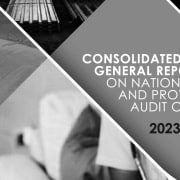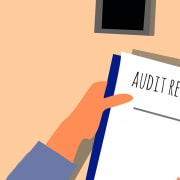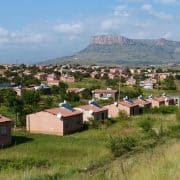|
Getting your Trinity Audio player ready...
|
South Africa is hosting the SAI20 Summit 2025, a gathering of heads of supreme audit institutions (SAIs) from G20 member countries, in Johannesburg on 24 and 25 June. The summit is chaired by the SAI of the country currently holding the G20 presidency, which also hosts all other G20 workstream engagements for that year.
Previous SAI20 meetings were held in Brazil (2024), India (2023), and Indonesia (2022), to coincide with those countries’ G20 presidency. The SAI group was established at the 2022 meeting in Jakarta.
In 2024 South African auditor-general Tsakani Maluleke accepted the SAI20 chair from Bruno Dantas, former president of the Tribunal de Contas da União, Brazil’s federal audit institution, and former chair of the International Organization of Supreme Audit Institutions (INTOSAI). As South Africa is the first African country to lead the G20, the SAI20 summit takes place on African soil for the first time.
The goal of the 2025 meeting is primarily to consider the outcomes of the SAI20 technical meeting held in February and the SAI20 senior officials meeting which took place in April, and agree on the final SAI20 communique – the latter is a collective statement that outlines the shared vision, commitments, and recommendations of the member SAIs, which they will work on during the year and which will contribute to advancing the G20 agenda.
“This important platform of global solidarity and collaborative problem-solving [brings together] both developing and developed countries and economies, representing 85% of global GDP, over 75% of international trade, and about two thirds of the world population,” said Maluleke in the opening speech of the day.
“These countries, these economies, these people, have come together to not just make sense of the challenges that confront them in their own countries … but to also put in place robust plans to mobilise and coalesce their collective resources to overcome those challenges and more strongly position themselves for enhanced social economic development and prosperity.”
Themes
SAI20 focuses on two primary developmental themes:
- unlocking and leveraging public infrastructure funding for equality, sustainable growth, and improvement in the lives of citizens, and
- collaborative and integrative efforts for a future-ready workforce by bridging the skills gap in sustainable economic growth.
These themes were chosen, said Maluleke, not because Africa lacks the resources to thrive and prosper. “The truth is, in many instances, plenty of those resources already exist. The trick is to harness and leverage these resources for the betterment of the lives of citizens. Central to our ability as nations to do that is our infrastructure and the skills and capabilities of our people.”
It is vital to have adequate infrastructure available for service delivery and for meaningful economic activity, she said. SAIs have a role to play in ensuring this happens, by advancing recommendations that governments can implement to unlock and accelerate progress in these specific areas of development. “We believe wholeheartedly that this is indeed the role that SAIs are meant to play in our society.”
Maluleke briefly mentioned the tragic deaths that occurred in recent days in the deadly Eastern Cape floods, adding that “We need to think carefully about the future needs for infrastructure so that we can resist such climatic conditions and pressures and enable emergency responders to act quickly, effectively, and without delay.”
Accordingly, she said, the SAI20 gathers not as a mere appendix to G20 chapters, but to live up to the promise “we made to citizens when we as supreme audit institutions agreed in INTOSAI-P (pronouncement) 12, that the value and benefit of supreme audit institutions is to make a difference to the lives of citizens.”
To the extent that the G20 is seized with how to confront and overcome the challenges that face humanity today, and to determine what must be done to make a difference to the lives of citizens, Maluleke added, “therein is the opportunity for SAIs to make an impact. Through our perspective, our experience, and our voice, we are uniquely positioned to provide relevant foresight, credible insight, and to enable oversight.”
The ultimate goal of the SAI20 group is to create an environment where public sector auditors all over the world can do their work for the maximum benefit of the citizens they are supposed to serve, without any fear, favour, or prejudice.
“How we approach the next few days will be an important step in terms of ensuring that our voice as independent, effective, credible, relevant, and value-adding supreme audit institutions continues to grow,” Maluleke concluded.







